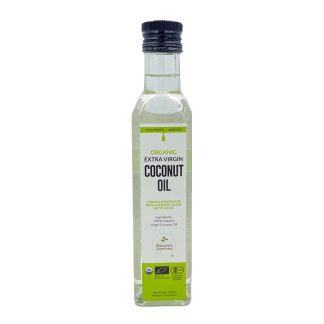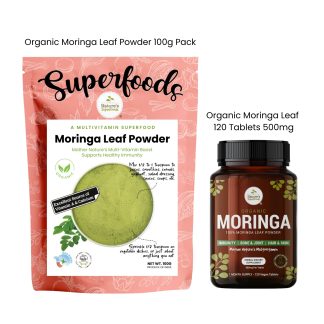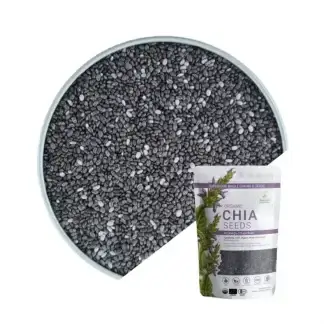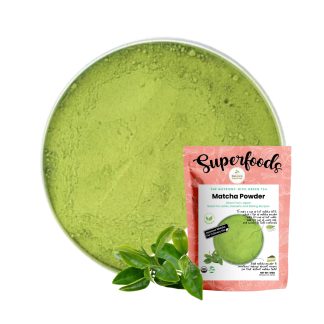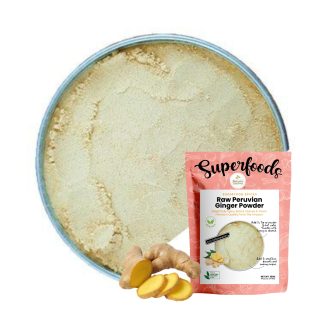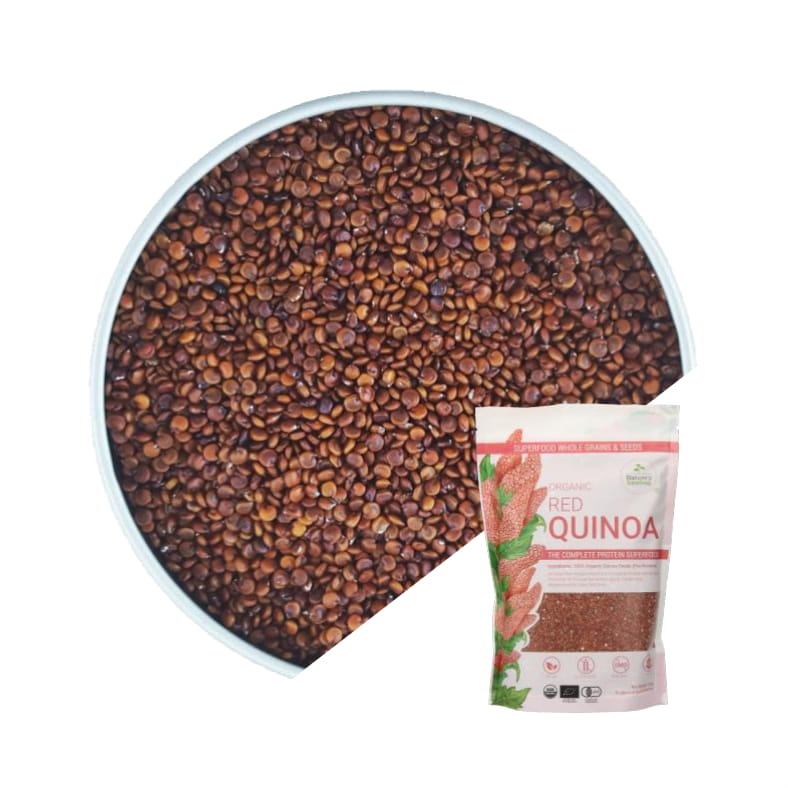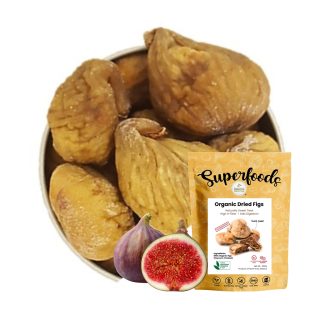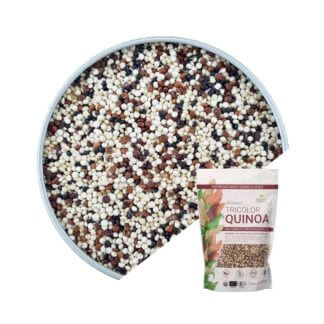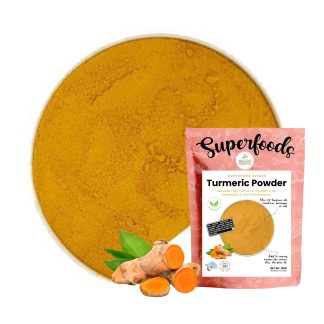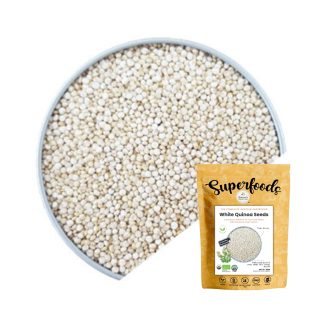-
No products in the cart.
Blood Sugar Control
Superfoods to Maintain Healthy Blood Sugar Levels
Blood sugar is an essential measure of your health. Excess sugar in the blood is the main indicator for all types of diabetes, including pre-diabetes. A form of carbohydrate, sugar occurs naturally in many of the foods we consume and functions as a necessary source of energy. Although the consumption of excessive amounts of added sugars can have detrimental effects on one’s health, sugar is not always bad. Despite being commonly depicted badly, many foods break down into blood sugar (or glucose), which is used for energy to fuel your brain, heart, and muscles.
Insulin, a hormone made by the pancreas, helps your body turn blood sugar (glucose) into energy. Without insulin, your body can’t use or store glucose properly for the necessary bodily functions. Instead, the glucose remains in your blood. When there is excess glucose in the blood, a condition called insulin resistance develops, reducing the ability of the cells to absorb and use blood sugar for energy. In people with insulin resistance, the cells are unable to use the hormone insulin effectively, leading to high blood sugar levels.
If you’re struggling to manage your blood sugar levels, you’re not alone. According to data, 1 in 7 Singaporean adults aged 18 to 69 has pre-diabetes. Most do not even know they have the condition. This is critical, especially since pre-diabetes could very well develop into Type 2 diabetes over time if there is no intervention. The good news is that studies have shown that adopting a healthier diet, regular exercise, and maintaining a healthy weight can reverse pre-diabetes, as well as reduce the risk of Type 2 diabetes.
Common causes/risk factors of pre-diabetes in Singapore are as follows:
- Sedentary lifestyle – long hours sitting in front of computers or TV with minimal movement.
- Regular consumption of high-carb, high-sugar processed foods which spike blood sugar easily. Examples : white bread, pastries, pasta, char kuey tiao, nasi lemak, kaya toast.
- Stress – prolonged periods of stress can cause insulin resistance where cells become less responsive to insulin.
- Poor quality of sleep – disrupts glucose metabolism.
How To Control Blood Sugar Levels
Here are our dietary recommendations to control blood sugar levels in Singapore:
1. Be mindful of your meal portions
It is important to choose portion sizes that suit your needs, according to your body mass and activity level. For an excellent recommendation of general portion sizes (carbs, protein, fats) of foods on your plate, refer to the guidelines as laid out here in My Healthy Plate. Fill half the plate (a normal sized plate) with primarily vegetables and some fruit. Fill a quarter of the plate with lean proteins like fish, chicken, tofu or eggs. These proteins naturally come with good beneficial fats too. The remaining quarter of the plate should be filled with whole grains like brown rice, wild rice, or quinoa. Regular consumption of whole grains, vegetables and fruits ensures an adequate intake of fiber which promotes slower digestion and better blood sugar management.
If you are eating out and whole grains are not easily available, control the portion size of the high-GI staples such as white rice or noodles to just the size of your fist. This provides a visual cue for moderation of high-glycemic foods like white rice, prata or pasta. A fist-sized portion of white rice or noodles leaves space on the plate (and in your stomach) for fiber-rich vegetables, protein, and healthy fats. Adding fiber-rich vegetables to a high-GI meal (like white rice or noodles) is good as this reduces the overall glycemic impact of the meal by buffering blood sugar spikes.
2. Make your calories count with whole foods
Instead of consuming almost empty calories from fast foods, ensure that your diet is filled with whole, nutrient-dense foods that have a low glycemic index (GI). Low-GI foods ensure more stable blood sugar levels, avoiding spikes and sugar crashes. These whole low-GI foods should contain:
-
- Good carbohydrates e.g. whole grains like brown rice, organic quinoa seeds, millet, rolled oats, etc., low-sugar fruits like berries, guava, apples, etc., and vegetables. For breakfast, instead of reaching out for high GI, high-sugar foods like sweet breads, nasi lemak, bee hoon, etc.on a daily basis, try low-GI foods such as overnight oats with chia seeds, wholemeal high-fiber bread, unsweetened Greek yoghurt topped with fruits, etc on alternate days. These low-GI food choices taste refreshingly good and will make you feel more energetic and less sluggish in the morning. Most low-GI foods with good carbs have high levels of fiber too. Fiber helps improve digestion, prevent sugar crash and give a more sustained level of energy in the morning. Adding organic chia seeds and flax seeds into your breakfast oatmeal or beverage helps boost your Omega-3 and fiber intake. Chia seeds, especially, are rich in soluble fiber which slows digestion and helps stabilize blood sugar levels while promoting satiety.
- Good fats & protein such as avocados, nuts, seeds, eggs, omega-rich fatty fish like salmon, mackerel, and tuna, as well as lean meats. Be mindful of the portion sizes, follow the guidelines in My Healthy Plate. Both protein & fats occupy the 1-quarter portion on the plate. Reduce the consumption of ‘bad’ fats such as those in fried foods, margarine, snacks with partially hydrogenated oils (PHOs). These are usually called trans fats and they are strongly linked to insulin resistance, making it harder for cells to absorb glucose.
Question: Do you need to go on a high-protein diet ?
Research has shown that dietary protein intake is not a primary concern in most nutritional guidelines for diabetic patients across different countries such as the USA, Canada and the UK. Instead, these guidelines usually recommend weight loss, increasing fiber intake, including low glycemic index (GI) foods, and reducing saturated fat intake for diabetes management. This approach aligns with the recommendations by Healthhub (Singapore) which emphasizes moderation and diversity—balancing protein with wholegrains, fruits, and vegetables to support glycemic control and overall health. Caution: excessive protein intake can lead to weight gain, which worsens insulin resistance. Here is a guide to how much protein you should be taking.
3. Add superfood spices to your daily diet
From Ceylon cinnamon and turmeric powder to ginger powder and fenugreek, sneak these flavorful spices into your daily foods or beverages. Many of our customers like to add our fragrant ceylon cinnamon into their morning coffee or oatmeal. Drinking ginger ‘kosong’ after a meal by adding our Peruvian ginger powder to hot water without sugar, is also a nice flavorful way to stabilize blood sugar and improve digestion at the same time. All these powerful anti-inflammatory spices are traditionally known to have blood sugar-lowering benefits for centuries. Modern research has also confirmed their abilities to support blood sugar regulation, especially when consumed regularly as part of the Mediterranean diet.
4. Reduce intake of nutritionally poor foods
It is best to avoid or reduce the intake of certain foods that are usually nutritionally poor. Some of these include:
Simple carbohydrates/ high-GI foods like white bread, white rice, cakes, pastries, sweetened beverages, soda, desserts high in refined sugar, etc. These foods drive up blood sugar levels very quickly. Those with sweet tooth can turn to naturally sweet whole fruits (not fruit juice) like apples, oranges, or dried fruits like organic goji berries, organic mulberries, organic figs. Whole fruits contain dietary fiber, which help slow the absorption of sugars and temper post-meal blood sugar spikes. Be aware of hidden sugars and refined carbs in common gravies/sauces such as in mee rebus, wonton mee, or salad dressings – ask for less gravy/sauce where possible.
Highly processed snacks/foods, especially meats like hot dogs, sausage, and bacon. These processed meats, which are usually high in sodium and nitrate preservatives, are linked to higher risks of heart diseases as well as diabetes. Common high-sodium foods like laksa or wonton mee or instant noodles should be eaten in moderation. Excessive sodium intake can lead to high blood pressure which can complicate blood sugar control, especially in people with or at risk of diabetes.
Trans fats consumed over long periods could promote insulin resistance. So, avoid trans fats found in processed snacks/frozen foods using PHOs, fried foods, baked goods, shortening and margarine. If you love snacking, go for savory healthy snacks which satisfy your taste buds and have no refined sugar or trans fats in them, such as Organic Crunchy Beansticks or Organic Crunchy Coconut Flakes. When eaten in moderation, these provide a quick boost of energy without sugar crashes.
In essence, managing blood sugar isn’t about a single fix—it’s a delicate interplay of lifestyle choices, from how we eat and move to how we rest and respond to stress. Among these, diet plays the most immediate and influential role, with every meal directly shaping blood glucose levels. Opting for a whole food diet—rich in fiber, minimally processed and naturally nutrient-dense—is one of the most effective strategies for supporting stable blood sugar and long-term metabolic health.
Browse Superfoods for Blood Sugar Control
Showing all 11 results
-
Chia & Ginger Salad Dressing
View More -
Organic Extra Virgin Coconut Oil
$9.95 – $27.90 View More This product has multiple variants. The options may be chosen on the product page -
Organic Moringa Leaf Powder & Tablets
$8.00 – $15.00 View More This product has multiple variants. The options may be chosen on the product page -
Organic Premium Black Chia Seeds
$11.90 – $22.90 View More This product has multiple variants. The options may be chosen on the product page -
Organic Premium Matcha Powder – Culinary Grade (For...
$19.20 View More This product has multiple variants. The options may be chosen on the product page -
Organic Raw Peruvian Ginger Powder
$8.90 View More This product has multiple variants. The options may be chosen on the product page -
Organic Red Quinoa Seeds
$9.90Out of stock
View More This product has multiple variants. The options may be chosen on the product page -
Organic Sun-Dried Figs
$16.00Out of stock
View More This product has multiple variants. The options may be chosen on the product page -
Organic Tricolor Quinoa Seeds
$9.95 – $17.95 View More This product has multiple variants. The options may be chosen on the product page -
Organic Turmeric Powder
$6.90Out of stock
View More This product has multiple variants. The options may be chosen on the product page -
Organic White Quinoa Seeds
$9.90 – $17.90 View More This product has multiple variants. The options may be chosen on the product page
Showing all 11 results



